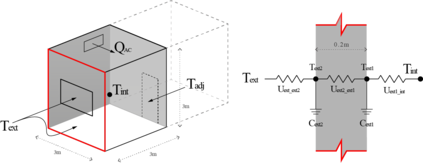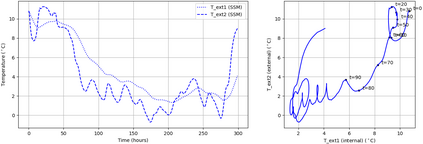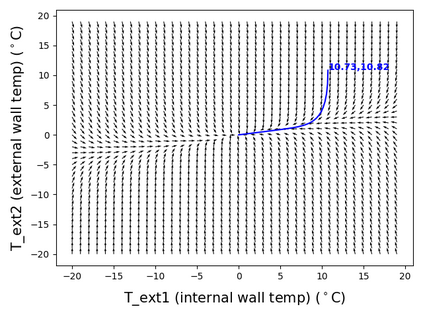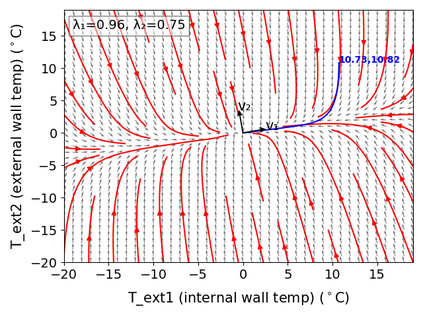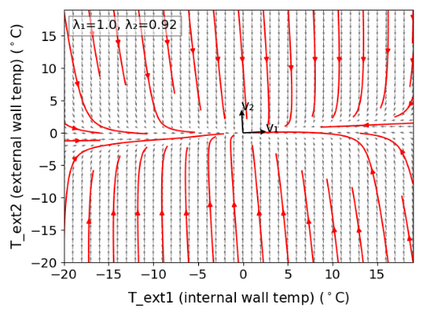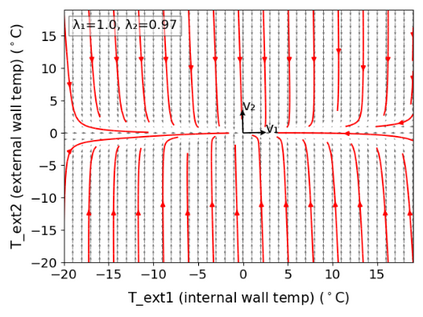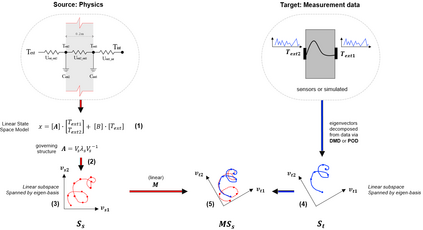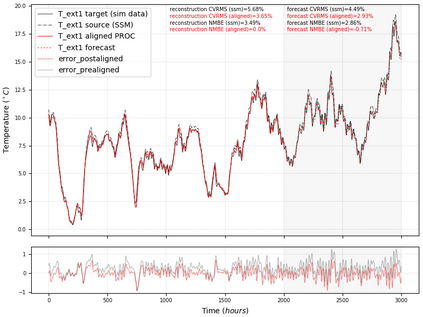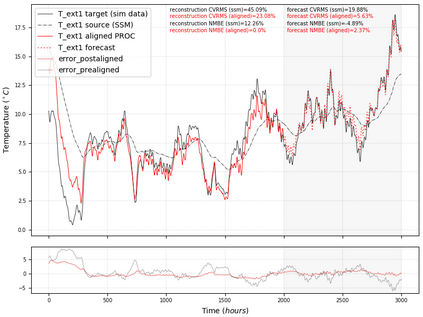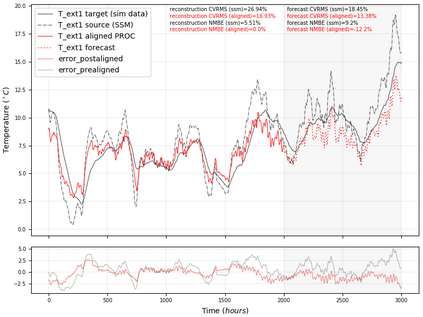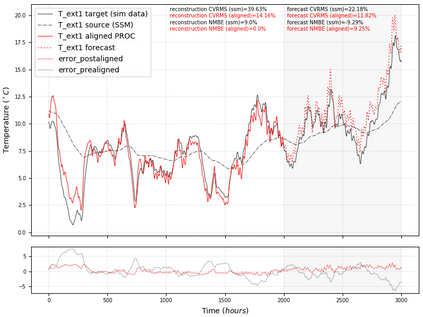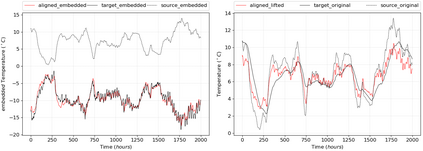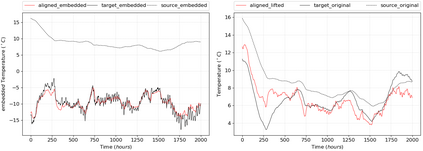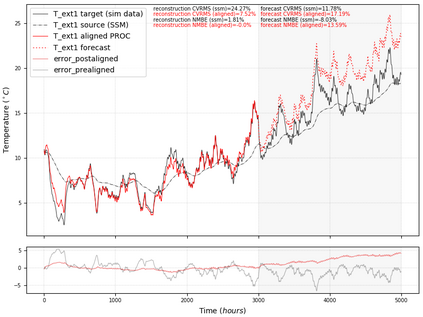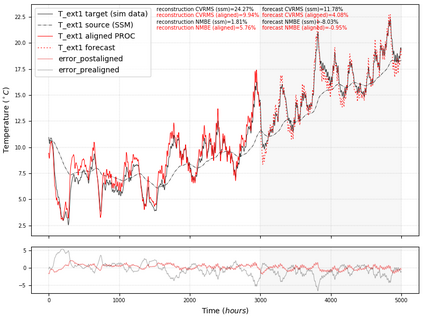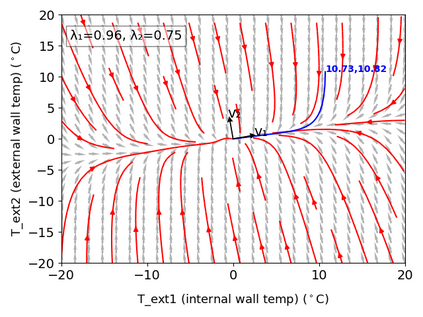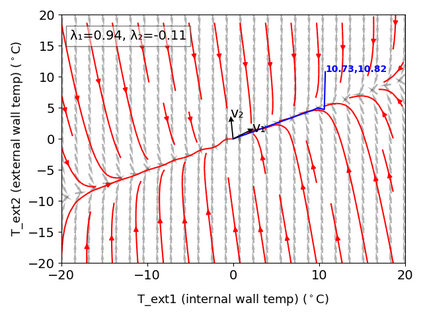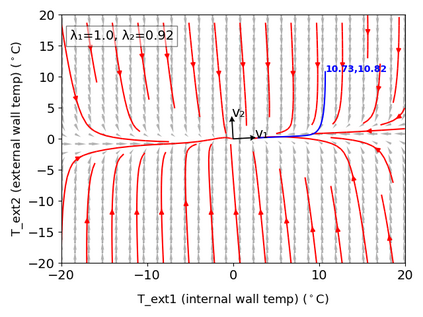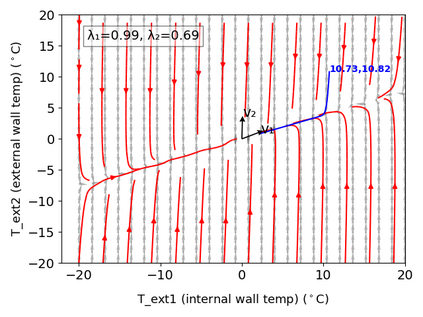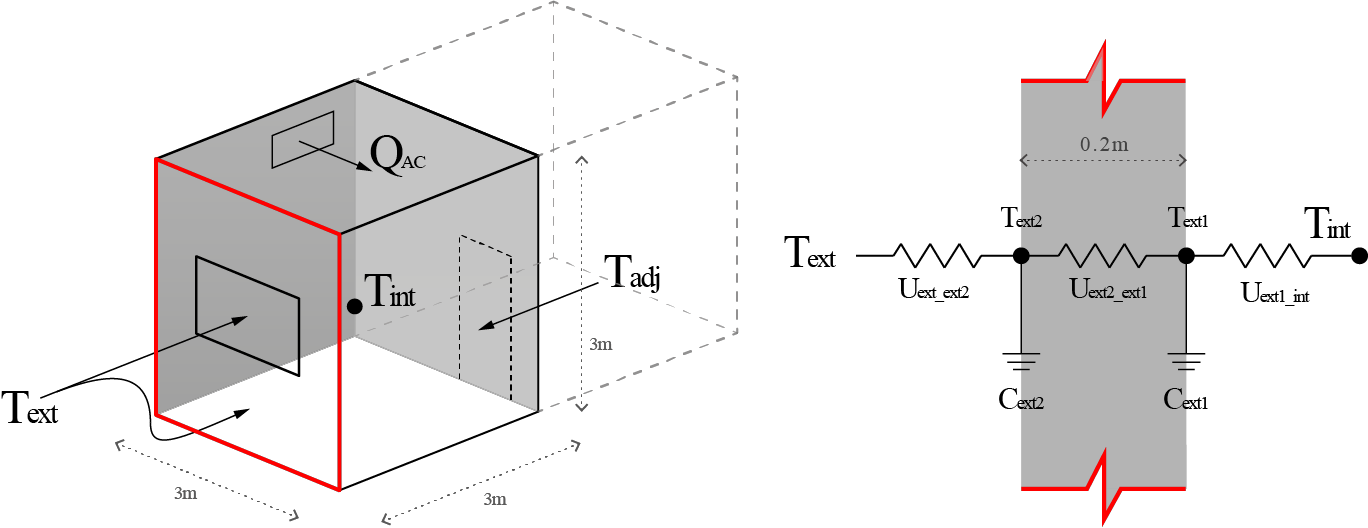State-of-the-art machine-learning based models are a popular choice for modelling and forecasting energy behaviour in buildings because given enough data, they are good at finding spatiotemporal patterns and structures even in scenarios where the complexity prohibits analytical descriptions. However, machine-learning based models for building energy forecasting have difficulty generalizing to out-of-sample scenarios that are not represented in the data because their architecture typically does not hold physical correspondence to mechanistic structures linked with governing phenomena of energy transfer. Thus, their ability to forecast for unseen initial conditions and boundary conditions wholly depends on the representativeness in the data, which is not guaranteed in building measurement data. Consequently, these limitations impede their application to real-world engineering applications such as energy management in Digital Twins. In response, we present a Domain Adaptation framework that aims to leverage well-known understanding of phenomenon governing energy behavior in buildings to forecast for out of sample scenarios beyond building measurement data. More specifically, we represent mechanistic knowledge of energy behavior using low-rank linear time-invariant state space models and subsequently leverage their governing structure to forecast for a target energy system for which only building measurement data is available. We achieve this by aligning the Physics-derived subspace that governs global state space behavior closer towards the target subspace derived from the measurement data. In this initial exploration we focus on linear energy systems; we test the subspace-based DA framework on a 1D heat conduction scenario by varying the thermophysical properties of the source and target systems to demonstrate the transferability of mechanistic models from Physics to measurement data.
翻译:然而,建筑能源预测的基于机器的模型很难概括为在数据中没有反映的外表情景,因为其结构通常不与管理能源转移现象的机械结构有物理对应关系。因此,它们预测看不见的初始条件和边界条件的能力完全取决于数据的代表性,而这些数据在建立测量数据方面没有得到保证。因此,这些限制妨碍了它们应用于现实世界的工程应用,例如数字双胞胎的能源管理。作为回应,我们提出了一个多曼适应框架,目的是利用众所周知的建筑能源行为管理现象的理解,预测除建立测量数据外的样本情景。更具体地说,我们代表了使用低级直线性时间可变空间空间空间空间系统对能源行为进行机械化了解,随后又利用其管理结构对目标能源系统进行预测,而目标能源系统在建立测量数据方面没有保障。我们从初步空间测量数据向更接近空间轨道数据转换。我们通过这一数据测试系统将这一数据从空间空间初始数据向次轨迹定位系统进行升级。

